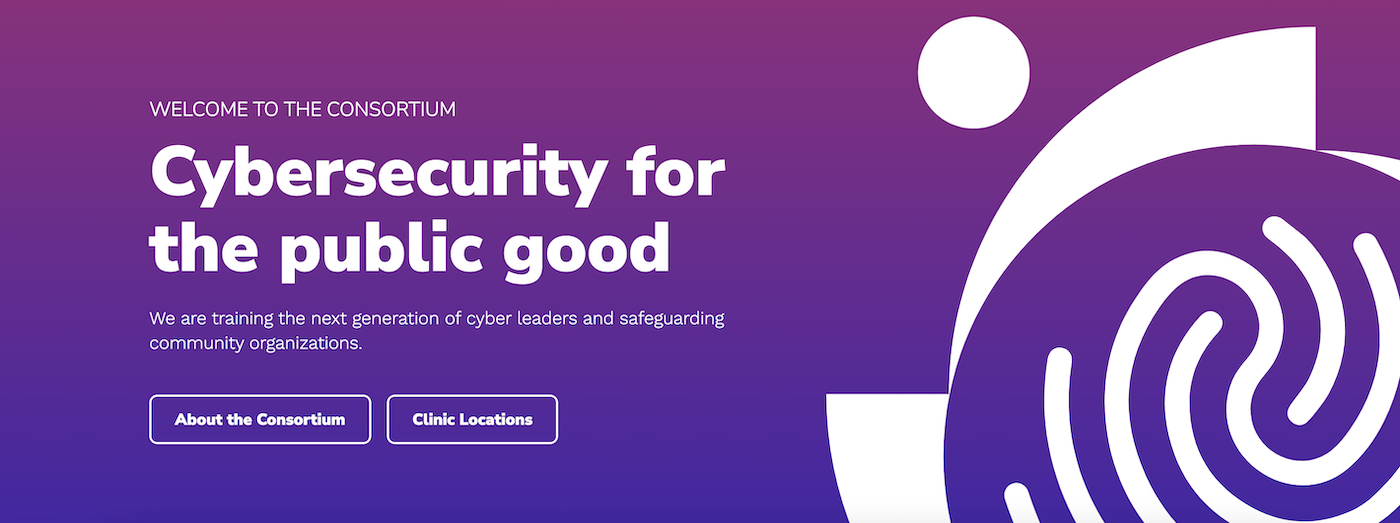Building a Community Cybersecurity Clinic
at HBCU Stillman College
Cybersecurity
July, 2023

Author: Dr. Kevin Harris serves as the Program Chair of the Department of Computational and Informational Sciences and the Executive Director of Stillman’s Cybersecurity DEI Clinic. He has delivered instruction as an Associate Professor in business, cybersecurity, computer science, computer forensics and computer networking, with particular interest in continuing to support diversity and inclusion efforts in STEM.
Dr. Kevin Harris sat down with PITUNiverse Editor Kip Dooley to discuss exciting new developments in cybersecurity at Stillman College.
Kip Dooley: Kevin, we’ve heard a lot of exciting news coming out of Stillman this past year. You won a $2.7 million federal grant for cybersecurity workforce development in 2022, and Google just announced a $20 million pledge to the Consortium of Cybersecurity Clinics, of which you’re a founding member. How has your cybersecurity work evolved over the past few years?
Kevin Harris: We are truly grateful to be part of these amazing initiatives. When we started looking at expanding our tech programs at Stillman, we asked, “What do we want these programs to do?” We figured out early on that we wanted them to be interdisciplinary. Technology is everywhere; you can’t have it housed in just one location. We started by adding the option for a cybersecurity concentration to any major: criminal justice, business, you name it. If a student has some kind of cyber interest, they can take advantage of that without necessarily committing to a full cybersecurity major. We continued to build on this program by launching a Cybersecurity DEI Clinic, with seed funding from New America.

Interdisciplinarity is a major tenet of public interest technology. What other elements of PIT helped to shape the cybersecurity program at Stillman?
When we started talking about PIT, it really resonated with our students. At historically Black colleges and universities generally, we’re seeing students come to campus with strong social justice awareness. They want to make a difference beyond their major. They’re asking, “How can I make the world a better place?” PIT fits really well with the big conversations about technology, including how surveillance is used. People talk about the “color of surveillance” — how certain communities of color get surveilled more than others — and there’s lots of news this year about artificial intelligence bias. All those issues fit within the same space of public interest technology, and our students find it interesting. It is critical to address issues from multiple viewpoints. Fostering a culture of inclusion and diversity is a core component of PIT.
How do you balance these concerns about equity in technology with the excitement that young people often have about innovation and new, interesting tools?
I often challenge my students to think about the other side of the coin. We had an interesting discussion about license plate readers, for instance. There was news that a police department used them to catch a kidnapper, which is great. But what if they were used to track who visits a certain medical facility? Or who visits a political donor? Are there guardrails in place for that? Unfortunately, a lot of the time those questions come out only after the technology has been in place for years. The conversation happens too late, and we can’t turn the clock back.
These bigger picture concerns about how tech is developed and deployed are really fascinating. I’m curious, why did you decide to double down on cybersecurity clinics as a primary focus for Stillman?
We want to get our students working with community clients that might not be as familiar with some of these bigger-picture issues and who might not have access to training. Cybersecurity is a very practical concern, and we want our students, when they leave college, to be able to say, “I’ve worked on a real-world project.”
In our cybersecurity clinic, students will develop training and awareness programs for local companies and nonprofits to help them realize potential risks and to understand not just the technical components of cybersecurity but also the policy side: What should your internal policies look like? What should your employee training look like? Smaller companies and organizations often have this perception that cybersecurity is something for the Fortune 500 companies. But for a small business, a cybersecurity breach could actually be a bankrupting event, the end of the business. In the news we often hear about the big breaches at a hospital or a private company that cost millions of dollars. That is devastating, I don’t mean to discount that, but they’re not going to go out of business because of a large cybersecurity breach. But if it’s a smaller company, whether it’s an individual marketing company or an auto mechanic shop, they’re more than likely going to go out of business if they aren’t properly prepared.

For the students who come from a more technical background, what do they gain by participating in a cybersecurity clinic? And vice versa, what do students with less of a technical background learn?
The big thing they learn is how to relay technical knowledge to somebody who is not technical. That’s key: no matter how good the technical idea is, if you can’t convey it to management to get the resources to implement, it will just stay an idea. And because the teams they work on are interdisciplinary, students also learn the value of teamwork and incorporating other valuable skill sets into the project. When you’re on a team and you have to deliver, you have to recognize the value of all members.
From the other side — the less technical students — they’re the ones who need to get a strong understanding of just how much technology impacts what they do on a day-to-day basis. From a business perspective, there are risks to utilizing technology. including using social media and the internet. No one is saying “don’t use the internet at all,” but it’s important to understand the risks so you can make informed decisions.
And sometimes students from non–tech-related majors realize they’re actually more technical than they thought. For example, I was speaking with a theology major recently who shared how technology impacted religious communities. The congregations that were more technically inclined before the COVID pandemic were able to pivot a lot more quickly to the world of virtual services. In today’s world the way that churches, synagogues, mosques, and other religious institutions deal with technology is critical. It serves as a stark reminder that no matter your major, you can’t separate technology out of the discipline. Technology is an interest of the public no matter what you do.
What role has PIT-UN played in the creation of Stillman’s cybersecurity clinic?
I was curious about what UC Berkeley was doing with cybersecurity clinics, so I began to gather information. I specifically took interest in how the clinics gave students experience with real clients in the community. A lot of our students make big sacrifices to be at Stillman and some are self-paying students, so the sooner we can get them into a real-life experience, not just reading a textbook for the first three years, the better.
Through another campus initiative, I heard from students that they were struggling to apply for technical jobs because these jobs require specific on-the-job experiences. The Citizen Clinic model from Berkeley seemed like the perfect way to provide this kind of training for our students earlier on in their academic journey.
Berkeley, MIT, and the whole Consortium of Cybersecurity Clinics have been very welcoming and very willing to share resources to support us joining as the first HBCU in the consortium. The University of Alabama is close to us, in Tuscaloosa, and they were one of the other original institutions that implemented the clinic model. We are fortunate to be the only city in the country currently with two clinics. The consortium has welcomed a wide range of institutions, big and small, rural and urban.
Cybersecurity is such a huge issue. If there were five schools in the same city that all had clinics, it still wouldn’t be enough. Sometimes there’s a sentiment in certain academic disciplines where schools want to be the only ones working on a problem. That’s just not the case here. Everyone’s working on this problem together and is encouraging more institutions to consider the clinic model.